|
Books Should Be Free Loyal Books Free Public Domain Audiobooks & eBook Downloads |
|
|
Books Should Be Free Loyal Books Free Public Domain Audiobooks & eBook Downloads |
|
Non-fiction |
|---|
|
Book type:
Sort by:
View by:
|
By: Frank Henderson | |
|---|---|
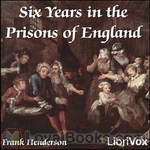 Six Years in the Prisons of England
Six Years in the Prisons of England
A Merchant talks about daily life inside prisons of England, describes routines and how prisoners are treated. He notes stories of how fellow prisoners came to be in prison, and his ideas about the penal system, its downfalls and ways to improve it. The reader can see similarities to the problems we still have in regarding "criminals" today. (Introduction by Elaine Webb) | |
By: Frank Lewis Dyer and Thomas Commerford Martin | |
|---|---|
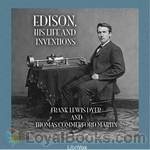 Edison, His Life and Inventions
Edison, His Life and Inventions
One of the most prolific and multi-talented geniuses the world has ever seen, Thomas Alva Edison's life is indeed an inspiration for each new generation. Today we live in a world that would not have been possible if not for several of his important inventions – the electric light bulb, the motion picture camera, electric power distribution, the phonograph, and a host of other things that we take for granted today. In fact, he still holds the world record for the maximum number of patents, numbering 1093 in all! Edison – His Life and Inventions by Frank Lewis Dyer and Thomas Commerford Martin, published in 1910 was in fact a biography commissioned by Edison himself... | |
By: Frank M. (Frank Morton) McMurry (1862-1936) | |
|---|---|
 How to Study and Teaching How to Study
How to Study and Teaching How to Study
| |
By: Franklin Allison Cresee | |
|---|---|
 Practical Pointers for Patentees
Practical Pointers for Patentees
| |
By: Franklin Beech | |
|---|---|
 The Dyeing of Cotton Fabrics A Practical Handbook for the Dyer and Student
The Dyeing of Cotton Fabrics A Practical Handbook for the Dyer and Student
| |
 The Dyeing of Woollen Fabrics
The Dyeing of Woollen Fabrics
| |
By: Franz Edelsheim (1868-) | |
|---|---|
 Operations Upon the Sea A Study
Operations Upon the Sea A Study
| |
By: Fred H. (Fred Herbert) Colvin (1867-1965) | |
|---|---|
 The Working of Steel Annealing, Heat Treating and Hardening of Carbon and Alloy Steel
The Working of Steel Annealing, Heat Treating and Hardening of Carbon and Alloy Steel
| |
By: Frederic Bastiat | |
|---|---|
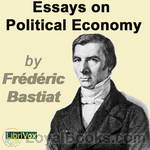 Essays on Political Economy
Essays on Political Economy
Bastiat asserted that the only purpose of government is to defend the right of an individual to life, liberty, and property. From this definition, Bastiat concluded that the law cannot defend life, liberty and property if it promotes socialist policies inherently opposed to these very things. In this way, he says, the law is perverted and turned against the thing it is supposed to defend. | |
By: Frédéric Bastiat | |
|---|---|
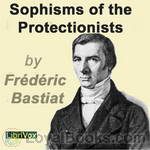 Sophisms of the Protectionists
Sophisms of the Protectionists
"To rob the public, it is necessary to deceive them," Bastiat said and believed. He reasoned, employing repetition to various applications, against fallacious arguments promoting the "Protection" of industries to the detriment of consumers and society. (Introduction by Katie Riley) | |
 Law
Law
"The law perverted! The law—and, in its wake, all the collective forces of the nation. The law, I say, not only diverted from its proper direction, but made to pursue one entirely contrary! The law becomes the tool of every kind of avarice, instead of being its check! The law guilty of that very inequity which it was its mission to punish! Truly, this is a serious fact, if it exists, and one to which I feel bound to call the attention of my fellow-citizens." —Frédéric Bastiat | |
By: Frederic DeWitt Wells (1874-1929) | |
|---|---|
 The Man in Court
The Man in Court
| |
By: Frederick A. Talbot (1880-?) | |
|---|---|
 Aeroplanes and Dirigibles of War
Aeroplanes and Dirigibles of War
"Aeroplanes and Dirigibles of War" is an interesting read of the beginnings of air warfare in World War I. Anyone interested in early aviation and armament will find this a fascinating work. By William Tomcho. | |
By: Frederick Adam Wright (1869-1946) | |
|---|---|
 Greek Athletics
Greek Athletics
The history of Greek athletics as it pertains to the Olympics. Describes various activities such as boxing, wrestling, etc. and accounts from witnesses, the Iliad, etc. as they pertain to famous Greeks and events. He discusses Greek views of physical appearance and fitness as they pertain to the games and society and also how and why individual city-states chose to participate in the Olympics. | |
By: Frederick Boyle (1841-?) | |
|---|---|
 About Orchids, a Chat
About Orchids, a Chat
This is not a manual of instruction for orchid growers; though there are many hints on cultivation, and a few paragraphs on how to hybridize. The author is just an enthusiastic amateur orchid lover. He takes the reader on a wander through the dangers and consequences of hunting orchids in the tropical jungles of the nineteenth century, and chats about the extreme peculiarities of orchid growth, behaviour and structure, colouring the essays with his own experiences and with his delight in cultivating these beautiful plants. Beware! A new hobby beckons! | |
By: Frederick Douglass (1818-1895) | |
|---|---|
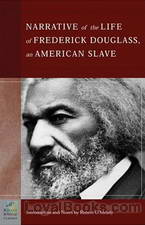 Narrative of the Life of Frederick Douglass
Narrative of the Life of Frederick Douglass
Frederick Douglass was born into slavery on a Maryland plantation. He faced hardship as a child, but later encountered owners who were relatively liberal and allowed him to learn to read, write and be in contact with freed slaves. At the age of 20, he escaped from the plantation and made his way to New York. Though he remained a fugitive, he married and changed his name to avoid being caught. He continued his education and became involved in the Abolitionist Movement. He began touring the country, speaking passionately about the unjust, cruel and inhuman practice of slavery... | |
By: Frederick G. Aflalo (1870-1918) | |
|---|---|
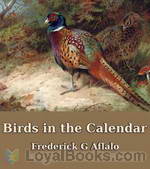 Birds in the Calendar
Birds in the Calendar
Delightful sketches of British wild birds – a bird for every month of the year from the pheasant in January to the robin in December. This collection of articles, reprinted in book form from the periodical The Outlook, is full of fascinating information about bird behaviour and habitat, as well as many interesting anecdotes. Out of date in some respects, particularly in its reference to the (now illegal) collecting of birds’ eggs, this book brings home forcefully how the populations of some British wild birds have declined since it was written. | |
By: Frederick Hugh Sykes (1877-1954) | |
|---|---|
 Aviation in Peace and War
Aviation in Peace and War
| |
By: Frederick Irving Anderson (1877-1947) | |
|---|---|
 Electricity for the farm Light, heat and power by inexpensive methods from the water wheel or farm engine
Electricity for the farm Light, heat and power by inexpensive methods from the water wheel or farm engine
| |
By: Frederick James Furnivall (1825-1910) | |
|---|---|
 Early English Meals and Manners
Early English Meals and Manners
| |
By: Frederick Whymper (1838-1901) | |
|---|---|
 Sea: Its Stirring Story of Adventure, Peril, & Heroism. Volume 1
Sea: Its Stirring Story of Adventure, Peril, & Heroism. Volume 1
Everything about the sea: history of ships, famous mariners and life on shipboard, adventure, shipwrecks and daring rescues. - Summary by Kikisaulite | |
By: Frederick Wilkinson | |
|---|---|
 The Story of the Cotton Plant
The Story of the Cotton Plant
| |
By: Friedrich Christian Accum (1769-1838) | |
|---|---|
 A Treatise on Adulterations of Food, and Culinary Poisons
A Treatise on Adulterations of Food, and Culinary Poisons
| |
By: Friedrich Engels (1820-1895) | |
|---|---|
 Condition of the Working-Class in England in 1844
Condition of the Working-Class in England in 1844
This is Engels' first book (since considered a classic account of England's working class in the industrial age), which argues that workers paid a heavy price for the industrial revolution that swept the country. Engels wrote the piece while staying in Manchester from 1842 to 1844, based on th bohis observations and several contemporary reports conducted over the period. | |
By: Friedrich Fröbel (1782-1852) | |
|---|---|
 Autobiography of Friedrich Froebel $c translated and annotated by Emilie Michaelis ... and H. Keatley Moore.
Autobiography of Friedrich Froebel $c translated and annotated by Emilie Michaelis ... and H. Keatley Moore.
| |
By: Friedrich Kerst | |
|---|---|
 Mozart, The Man and the Artist as Revealed in His Own Words
Mozart, The Man and the Artist as Revealed in His Own Words
Wolfgang Amadeus Mozart. His name is one of the most recognizable names in history and one of the most enduring of composers. At age 5, this “wunderkinder” took to the stage and began his life as a prolific and celebrated creator-genius of such luminous works the world has not known since. This collection of morsels taken from his personal letters is engaging and gives a look into the mind of the boy wonder. Was he mad? Was he miraculous? | |
By: Friedrich Nietzsche (1844-1900) | |
|---|---|
 Beyond Good and Evil
Beyond Good and Evil
Beyond Good and Evil, by Friedrich Nietzsche A searing indictment of concepts like “truth” and “language” Beyond Good and Evil, by Friedrich Nietzsche is a deeply thought provoking book that forms one of the keystones of modern thought and politics. In this book, Nietzsche takes the position that our subservience to fixed perspectives that are forced on us by our language and our ideals make us incapable of perceiving reality. He propounds the theory that ideals are not fixed but change over time, often dramatically, and end up becoming the exact opposite of what they originally were... | |
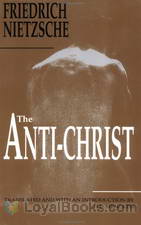 The Antichrist
The Antichrist
Save for his raucous, rhapsodical autobiography, Ecce Homo, The Antichrist is the last thing that Nietzsche ever wrote, and so it may be accepted as a statement of some of his most salient ideas in their final form. Of all Nietzsche’s books, The Antichrist comes nearest to conventionality in form. It presents a connected argument with very few interludes, and has a beginning, a middle and an end. | |
By: Friedrich Schiller | |
|---|---|
 The Thirty Years War
The Thirty Years War
The History of the Thirty Years War is a five volume work, which followed his very successful History of the Revolt of the Netherlands. Written for a wider audience than Revolt, it is a vivid history, colored by Schiller’s own interest in the question of human freedom and his rationalist optimism. Volume 1 covers the background of the war, through the Battle of Prague in late 1620. (Introduction by Alan Winterrowd) | |
By: Friedrich Wieck (1785-1873) | |
|---|---|
 Piano and Song
Piano and Song
This book talks about teaching, learning and performing on the piano in a delightful style, alternating between conversation and instruction. As he was the father of Clara Schumann and Robert Schumann's teacher, need I say more? | |
By: Fritz Kreisler | |
|---|---|
 Four Weeks in the Trenches
Four Weeks in the Trenches
A brief record of the fighting on the Eastern front in the great war by a participant in that great and terrible conflict | |